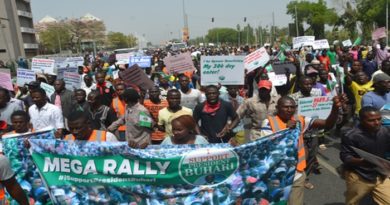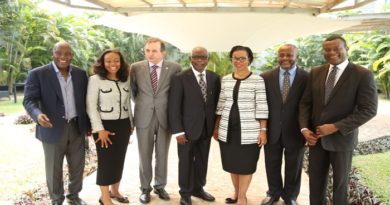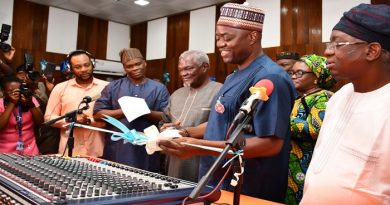Final billing system ensures closure of vessel’s transactions within 2 weeks – NIMASA DG
The Nigerian Maritime Administration and Safety Agency (NIMASA) on Friday said the Final Billing System (FBS) would ensure immediate closure of all vessel’s transactions within two weeks.
The Director-General of NIMASA, Dr Dakuku Peterside, made this known during a media briefing on the achievements and upcoming Annual Dinner and Awards Night of the agency in Lagos.
According to him, NIMASA is a regulatory and enforcement agency and not an operations agency and as such ensures that vessels that come into the country operates under good standards.
“Before now, operators in the industry who come into the country with their vessels stay long on their transactions and incurred charges but the introduction of the system brought about changes.
“The final billing system, an automated system introduced by the agency aided them in the issue of sailing clearance, and helps improve dwell time and turnaround time in the port.
“It ensures immediate closure of all vessels transactions within a period of two weeks and puts an end to double billing and over billing,” he said.
Peterside pointed that the agency improved on maritime domain awareness used in tracking every vessel heading or leaving the country’s territorial waters.
He added that with the domain, a five-year profile would be done to identify and monitor vessels of special interest, illegal activities and help to minimise their effects on the country.
He noted that the business meetings between Nigerian shipping companies and other countries created a lot of opportunities for local businesses to meet their international counterparts.
The director-general said that as regards the Cabotage Waiver Situation Plan, some category of vessels would not be allowed to be imported into the country, saying that it would give room to building ships in-house.
He said the agency would be partnering with the Nigerian Content Development Board to that effect, urging shipowners to build capacity and take the opportunity.
He pointed out that there would be more enforcement of the cabotage regime, saying that the Cabotage Vessel Financing Fund when implemented would support local people in coastal trade.
Peterside said that as regards security, there was a drop in the number of accidents on the waterways, saying that an automated maritime safety number existed for people to reach, of which search and rescue marshalls would be reached.
He said that without safety and security, one would not benefit from the coastal water and so the C4I system (Command, Control, Communications, Computers, & Intelligence) which was pre-emptive and reactive ensured the eye view of the countries coastal water.
He said that in the management of pollution of the waterways, the agency had met all international convention requirements and would be able to acquire the International Maritime Organisation’s Standard Operating Procedures for claims in pollution management.
The director-general said NIMASA had also developed a software to help track the carriage of dangerous goods that would be detrimental to the country.
Peterside said that a bigger achievement of the Nigerian Ship Registration Office which undergone a comprehensive reform saw its certificate now with six security features.
“Reputation matters a lot; so it should not be a subject of whether the certificate is authentic or not and all its processes are automated.
“It is ISO certified and it is a ship registry that can compete with a Singapore flag,” he said.
He pointed out that as a form of employment generation, the agency had employed 7,414 persons in 2019 as against 4,235 in 2018.
Peterside added that on Jan. 18, the agency would be appreciating staff who were outstanding, who had put in long service; stakeholders and Nigerians that were doing great things in the maritime industry.(NAN)




